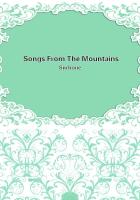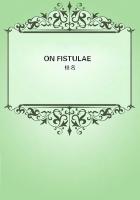Convocation met at the same time, but Convocation had changed much since 1559 when it declared bravely in favour of the Real Presence, Transubstantiation, the Mass, Papal supremacy, and the independence of the Church. The effects of the deprivation of the bishops, deans, archdeacons, canons, and clergy, and of the wholesale ordinations "of artificers unlearned and some even of base occupations" by Parker and Grindal and others were plainly visible.[14] Convocation was no longer Catholic in tone. It was distinctly Puritan. A proposal was made that all holidays and feasts should be abolished except Sundays and "the principal feasts of Christ," that there should be no kneeling at Communion, no vestments in the celebration of Common Service except the surplice, no organs in the churches, no sign of the cross in baptism, and that the minister should be compelled to read divine service facing the people. The proposal was debated warmly and in the end was defeated only by one vote.[15] One of the principal objects for which Convocation had been called was to draft a new dogmatic creed for the Church "as by law established." This was a matter of supreme importance. But as it was necessary to affirm nothing that would offend the Huguenots of France and the theologians of Switzerland and Germany, or rouse the latent Catholic sentiments of the English people, it was also a work of supreme difficulty. In other words the creed of the established Church must be in the nature of a compromise, and a compromise it really was. The Forty Two Articles of Edward VI. were taken as the basis of discussion. As a result of the deliberations they were reduced to Thirty Nine,[16] in which form they were signed by the bishops and clergy, before being presented to Elizabeth and her ministers for approval. As an indication to the clergy that the office of supreme governor was no sinecure Elizabeth would not authorise the publication of the Articles until a very important one dealing with the Eucharist had been omitted, and until another one regarding the authority of the Church to change rites and ceremonies had been modified. That influences other than doctrinal were at work in shaping the Thirty Nine Articles is evident from the fact that the particular Eucharistic Article referred to was omitted in 1563 lest it should drive away Catholics who were wavering, and inserted again in 1570 when the government, then in open war with Rome, was determined to give back blow for blow. The catechi** drawn up by Convocation for the use of the laity was promptly suppressed by Cecil.
By the adoption of the Thirty Nine Articles as its official creed the English Church "by law established," cut itself adrift from the Catholic Church and from the faith that had been delivered to the Anglo-Saxon people by Rome's great missionary St. Augustine. However ambiguous might be the wording to which the authors of the Articles had recourse in order to win followers, there could be no longer any doubt that on some of the principal points of doctrine the new creed stood in flagrant contradiction to the doctrines received by the Catholic world. The Pope, whose spiritual powers had never been called into question till the days of Henry VIII., was declared to have no jurisdiction in England. The Sacrifices of the Masses (as it is put)were denounced as blasphemous fables and dangerous deceits;Transubstantiation was regarded as unscriptural and opening the way to superstition; the doctrine of the Real Objective Presence of Christ was implicitly condemned; the summoning of a General Council was made dependent on the will of the secular princes; the fact that such assemblies could err and did err in the past was emphasised; five of the Sacraments, namely, Confirmation, Penance, Holy Orders, Matrimony and Extreme Unction were declared not to be Sacraments of the Gospel, and the Roman doctrine concerning Purgatory, Indulgences, the invocation of saints, and veneration of images and relics was pronounced to be a foolish and vain invention, contradictory to the Word of God.[17]
The new repressive legislation, at least in regard to fines and imprisonment, was enforced strictly against Catholics who were still a strong body, especially in the north. On the accession of Pius V.
(1566-72) the friendly attitude hitherto maintained by Rome was changed. There could no longer be any hope that Elizabeth would modify her religious policy, as even her former ally and supporter Philip II.
was forced to admit, and there was grave danger that the opinion entertained by some, that Catholics should be permitted to attend Common Prayer was a purely legal function, might do considerable harm.
Hence a strong condemnation of the English service was published by the Pope, and a commission was granted to two English priests, Sanders and Harding, empowering them to absolve all those who had incurred the guilt of schism (1566). As even this was not sufficient to put an end to all doubts, and as the authority of the papal agent Laurence Vaux was questioned by certain individuals, a formal Bull of reconciliation was issued in 1567, authorising the absolution of those who had incurred the guilt of heresy or schism by their obedience to the Acts of Supremacy and Uniformity.
Apart from other considerations, this clear and definite statement of the attitude of the Pope towards attendance at the English service helped to stiffen the backs of the English Catholics, and to determine even the waverers to stand firm; but in addition to this the question of the succession to the throne raised considerable discussion.















